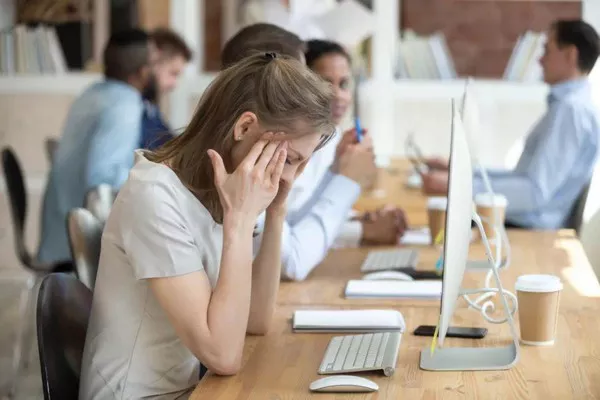Friendships are some of the most meaningful relationships in our lives. They provide emotional support, companionship, and a sense of belonging. However, when a friendship comes to an end—whether through conflict, distance, or personal growth—it can be deeply painful. Unlike romantic breakups, the pain of losing a friend is often underestimated, but it can be just as intense and long-lasting.
In this article, we will explore why ending a friendship hurts so much, the psychological and emotional impact of friendship loss, and how to heal from it.
1. The Emotional Bond of Friendship
Friendships are built on trust, shared experiences, and emotional connections. These bonds can be as strong as family ties or romantic relationships.
Friendships Provide Emotional Stability – Friends are often our go-to people in times of joy and crisis. Losing them can feel like losing a part of our emotional support system.
Deep Understanding and Connection – A close friend understands your fears, dreams, and personality in ways that others might not. Losing that connection can feel like losing a piece of yourself.
Mutual Investment Over Time – Friendships take time, effort, and emotional investment. When they end, all of that effort may feel wasted, leading to sadness and regret.
Because of these deep bonds, the pain of losing a friend can feel overwhelming and difficult to process.
2. The Psychological Impact of Friendship Loss
Psychologically, friendship loss can be just as painful as a breakup with a romantic partner. This is because human brains are wired for social connections, and the loss of those connections can trigger emotional distress.
Grief and Loss Response – Studies have shown that the brain processes social rejection and emotional pain in the same way as physical pain. This means losing a friend can feel like a physical wound.
Feelings of Rejection and Betrayal – If a friendship ends due to conflict or betrayal, the feelings of rejection can be intense. It can make people question their self-worth and ability to trust others.
Loss of Identity – When a friendship ends, especially one that lasted for years, it can impact how we see ourselves. Friends shape our identity, and losing them can lead to a feeling of emptiness or confusion about who we are without them.
These psychological effects explain why it can take a long time to recover from a friendship loss.
3. The Role of Expectations in Friendship
Friendships come with unspoken expectations, such as loyalty, support, and mutual respect. When a friendship ends, it often feels like those expectations have been broken.
Unmet Emotional Expectations – If a friend fails to support you during a tough time, it can feel like a betrayal, leading to pain and disappointment.
Differing Growth Paths – Sometimes, friendships end not because of betrayal, but because people grow in different directions. This can still be painful because the expectation of lifelong friendship is broken.
Assumption of Permanence – Many people assume that close friendships will last forever. When they don’t, it can be shocking and emotionally devastating.
Understanding that friendships change over time can help ease the pain of losing one.
4. The Social and Practical Consequences of Friendship Loss
Friendship loss does not only impact emotions; it can also affect daily life in practical ways.
Loss of a Social Support System – If a friend was a major part of your life, losing them can leave you feeling lonely and unsupported.
Impact on Mutual Friends and Social Circles – When a friendship ends, it can create tension within a larger friend group, making social situations awkward or uncomfortable.
Changes in Routine and Lifestyle – If you regularly spent time with a friend, their absence can leave a void in your daily routine, making the loss feel even more painful.
These changes can make the process of moving on more difficult, as they serve as constant reminders of what was lost.
5. Why Does It Hurt More Than a Romantic Breakup?
In some cases, losing a close friend can hurt even more than the end of a romantic relationship. Here’s why:
Less Social Acknowledgment of Friendship Breakups – Society tends to recognize romantic breakups as significant losses, but friendship breakups are often overlooked. This can make the grieving process feel more isolating.
Longer History and Deeper Emotional Bonds – Friendships, especially lifelong ones, often have a deeper emotional history than romantic relationships, making their loss harder to bear.
Lack of Closure – Unlike romantic breakups, which often involve a formal discussion, friendships sometimes fade away or end abruptly, leaving a sense of unfinished business.
Because of these factors, losing a close friend can feel like an invisible wound—one that others may not fully understand.
6. How to Heal from a Friendship Breakup
Healing from the loss of a friendship takes time, but there are ways to make the process easier.
Acknowledge Your Feelings
Ignoring the pain of friendship loss can make it worse. Allow yourself to grieve and recognize that your emotions are valid.
- Write about your feelings in a journal.
- Talk to a trusted friend or therapist.
- Accept that it’s okay to feel sad, angry, or confused.
Reflect on the Friendship
Understanding why the friendship ended can help you gain closure.
- Was the friendship toxic or one-sided?
- Did you and your friend grow apart naturally?
- Could the friendship be repaired, or is it better to move on?
By reflecting on these questions, you can find peace with the situation.
Focus on Self-Growth
Losing a friend can be painful, but it also presents an opportunity for personal growth.
- Take up new hobbies or interests.
- Invest time in strengthening other relationships.
- Focus on self-care and emotional healing.
By shifting your focus to personal growth, you can turn the pain of loss into a chance for positive change.
Consider Reconnecting (If Appropriate)
Not all friendship breakups need to be permanent. If the loss was due to a misunderstanding, reaching out might help repair the relationship.
- Send a message expressing your feelings and willingness to talk.
- Apologize if necessary and be open to hearing their perspective.
- Respect their response, even if they don’t want to reconnect.
Sometimes, friendships can be mended with time and honest communication.
Conclusion
Friendships play a vital role in our emotional well-being, which is why losing one can be so painful. The hurt comes from the deep emotional bonds, shared memories, and expectations we attach to friendships. However, while the pain of losing a friend is real, it is also possible to heal, grow, and find new meaningful connections. Though the pain of a lost friendship may never fully disappear, it can become a stepping stone to deeper self-awareness and stronger future relationships.
Related topics:



















